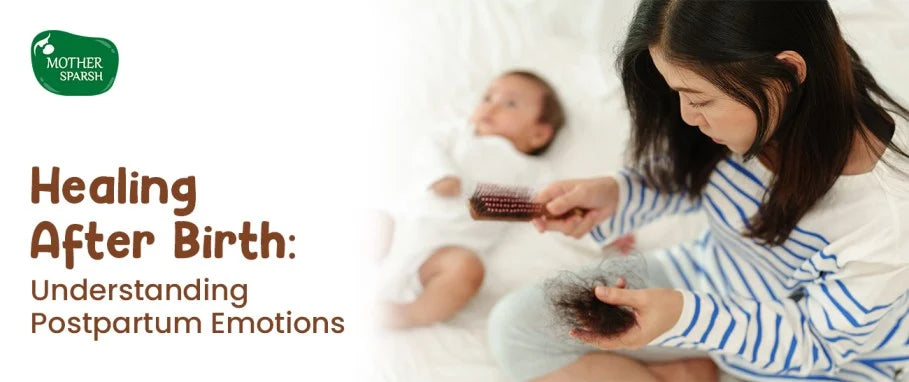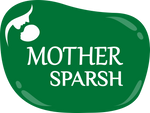
Postpartum Emotional Health: Navigating the Emotional Journey After Childbirth
Welcome to the emotional whirlwind of new motherhood! Whether celebrating tiny firsts or navigating sleepless nights, becoming a mom brings many emotions. It’s exciting, challenging, and sometimes overwhelming—but you’re not alone.
Postpartum emotional health is an important topic for every new mother, as it can shape your overall well-being and your connection with your little one. In this blog, we’ll dive into common postpartum feelings, help you differentiate between baby blues and postpartum depression, and offer tips to care for your emotional health. Let’s take this journey together—because a happy, healthy mama makes for a thriving baby!
Baby Blues vs. Postpartum Depression: Understanding The Difference
1. The Baby Blues
After childbirth, up to 80% of new mothers experience the baby blues—a normal, short-term adjustment period.
-
Symptoms: Mood swings, crying spells, irritability, and mild anxiety.
-
Duration: Typically resolves within two weeks after delivery.
Think of the baby blues as your body’s way of recalibrating after hormonal shifts. It’s normal to feel overwhelmed, but these feelings should ease with time and self-care.
2. Postpartum Depression Symptoms
If your feelings of sadness, exhaustion, or anxiety last beyond two weeks or worsen, you might be experiencing postpartum depression.
-
Symptoms: Persistent sadness, feelings of hopelessness, trouble bonding with your baby, or even thoughts of self-harm.
-
Duration: About 1 in 7 mothers experience postpartum depression.
Unlike the baby blues, postpartum depression requires professional help. Early intervention can make a world of difference for both you and your baby.
A Quick Comparison: Baby Blues vs. Postpartum Depression
|
Symptom |
Baby Blues |
Postpartum Depression |
|
Duration |
Up to 2 weeks |
Beyond 2 weeks |
|
Mood Swings |
Mild |
Severe |
|
Ability to Function Normally |
Generally intact |
Often impaired |
Postpartum Anxiety: A Mother’s Silent Struggle
While postpartum depression often gets attention, postpartum anxiety is just as common but less talked about.
-
Signs: Constant worry, intrusive thoughts, or physical symptoms like rapid heartbeat.
-
What Helps: Breathing exercises, therapy, or joining support groups can help ease postpartum anxiety.
If your worries feel overwhelming, remember it’s okay to seek help. Your peace of mind matters!
Emotional Support for New Mothers: Why It’s Important
As a new mom, you might feel pressure to "have it all together," but no one can do it alone. Emotional support is key to navigating postpartum challenges.
-
Lean on Loved Ones: Share your feelings with your partner, family, or friends.
-
Join a Support Group: Many moms find comfort in connecting with others experiencing similar challenges.
-
Speak to a Professional: Therapists or postpartum counsellors can offer tools to cope and thrive.
Remember, asking for help isn’t a sign of weakness—it’s a step toward healing.
Also Read:
Parenting Balance: Simple Self-Care Routines for Busy Moms
How to Bond with Your Newborn: Simple Techniques for Parents
Coping Strategies for Postpartum Emotional Health
Here are some practical tips to help you care for your emotional well-being:
1. Prioritize Self-Care (Yes, You Deserve It!)
-
Take short breaks to recharge, even if it’s just 15 minutes.
-
Nourish your body with healthy snacks and stay hydrated.
-
Rest whenever you can—even if it’s not “perfect.”
2. Practice Emotional Self-Care
-
Journaling: Write down your thoughts to process emotions.
-
Meditation: Spend a few minutes daily in mindfulness to reduce stress.
-
Therapy: Speaking with a counselor can provide clarity and support.
3. Recognize Your Wins
Celebrate small victories, whether it’s surviving a sleepless night or your baby’s first smile.
When to Seek Professional Help
It’s time to reach out to a professional helper when:
-
Your symptoms persist beyond two weeks.
-
You feel disconnected from your baby.
-
You experience thoughts of self-harm or harming others.
Resources like Postpartum Support International or your local healthcare provider are there to help. Seeking help is an act of strength, not failure.
Embrace this Wonderful Journey
Postpartum life is a blend of love, challenges, and growth. It’s okay to feel a mix of emotions as you adjust to this new chapter. You’ll create a nurturing environment for yourself and your baby by prioritising your emotional health and seeking support when needed.
Remember, mama, you’re doing an amazing job. Take one step at a time, be kind to yourself, and embrace the beauty of your postpartum journey. You’ve got this!





